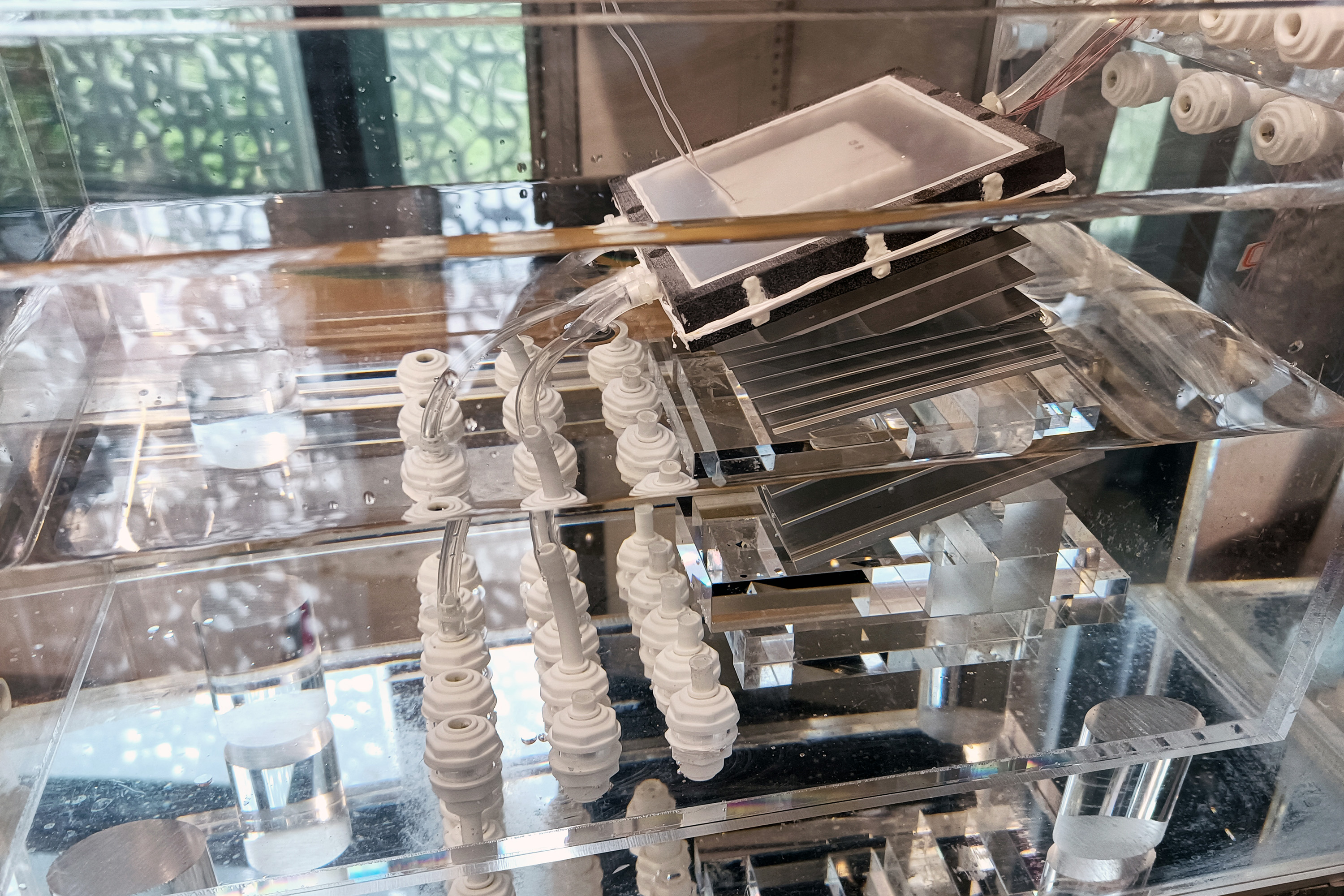Engineers at MIT and in China are aiming to turn seawater into drinking water with a completely passive device that is inspired by the ocean, and powered by the sun.
In a paper appearing today in the journal Joule, the team outlines the design for a new solar desalination system that takes in saltwater and heats it with natural sunlight.
The researchers estimate that if the system is scaled up to the size of a small suitcase, it could produce about 4 to 6 liters of drinking water per hour and last several years before requiring replacement parts. At this scale and performance, the system could produce drinking water at a rate and price that is cheaper than tap water.



Evaporate it to solid, store it if need be, or distribute it back into the sea in absorbable chunks. The water’s ending up back in the sea eventually anyway, see water cycle, so it should be zero sum, just need to avoid local overloads. Seems eminently solvable.
Sounds so easy for you but what to do with the excess salt is the only real problem with desalination that we have for decades now. It’s not easy to solve.